10 things you are most likely to forget when planning your wedding
10 things you are most likely to forget when planning your wedding
Wedding planning is stressful, and if you’re anything like most brides you’re having stress dreams that you show up to the wedding and something important is just...forgotten. No music, no food, maybe even no dress! So what are you actually most likely to forget?
1. The legal stuff
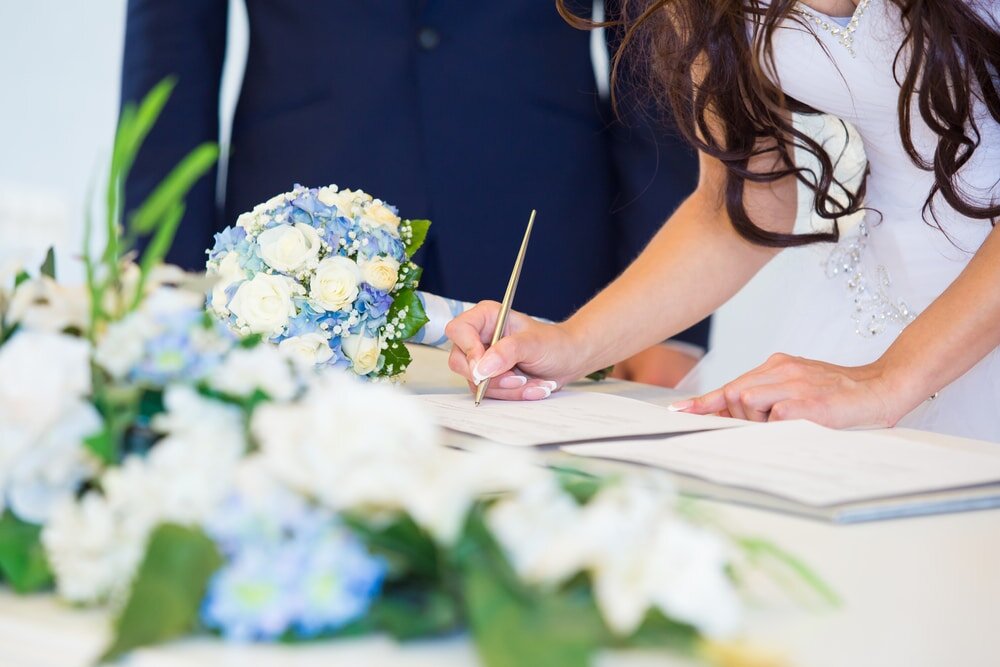 This might seem boring, but if you want your marriage to be official on the day, it’s kinda the most important part! If you’ve got an experienced priest or officiant, this shouldn’t be a problem, but it’s worth making sure they know what they’re doing. The details depend on where you’re based. After your wedding it will be awhile before all the paperwork goes through and you can collect a Marriage Certificate to prove things. That means you can’t change your name on your driver’s license or other legal documents for a while, so don’t book honeymoon flights or anything serious in your new name.
This might seem boring, but if you want your marriage to be official on the day, it’s kinda the most important part! If you’ve got an experienced priest or officiant, this shouldn’t be a problem, but it’s worth making sure they know what they’re doing. The details depend on where you’re based. After your wedding it will be awhile before all the paperwork goes through and you can collect a Marriage Certificate to prove things. That means you can’t change your name on your driver’s license or other legal documents for a while, so don’t book honeymoon flights or anything serious in your new name.
2. A plan for getting ready
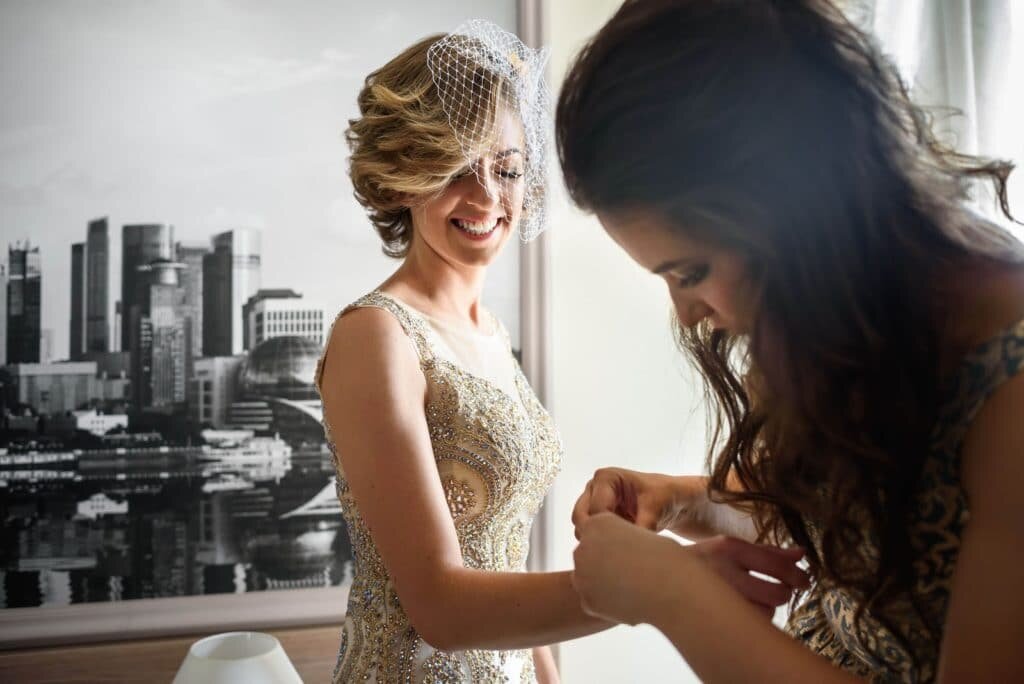 Where are you going to get ready, and who is going to be there? First things first, think about the practicalities: how far is it from the ceremony venue or the hair and makeup salon? How many people are going to comfortably fit in the space? Are the bride and groom getting ready at the same place or different places? Is your family getting ready at the same place, or somewhere else? You should also consider the aesthetic side of things. How will the wedding photos of you getting in your bridal gown look? Lots of people choose to get ready in a hotel room or in a friend’s home to save the stress of keeping the house tidy enough for pictures, or because the lighting in their own place is bad for photos. Whatever you decide, make sure everyone knows where they’re getting ready so the morning runs smoothly.
Where are you going to get ready, and who is going to be there? First things first, think about the practicalities: how far is it from the ceremony venue or the hair and makeup salon? How many people are going to comfortably fit in the space? Are the bride and groom getting ready at the same place or different places? Is your family getting ready at the same place, or somewhere else? You should also consider the aesthetic side of things. How will the wedding photos of you getting in your bridal gown look? Lots of people choose to get ready in a hotel room or in a friend’s home to save the stress of keeping the house tidy enough for pictures, or because the lighting in their own place is bad for photos. Whatever you decide, make sure everyone knows where they’re getting ready so the morning runs smoothly.
3. The set up
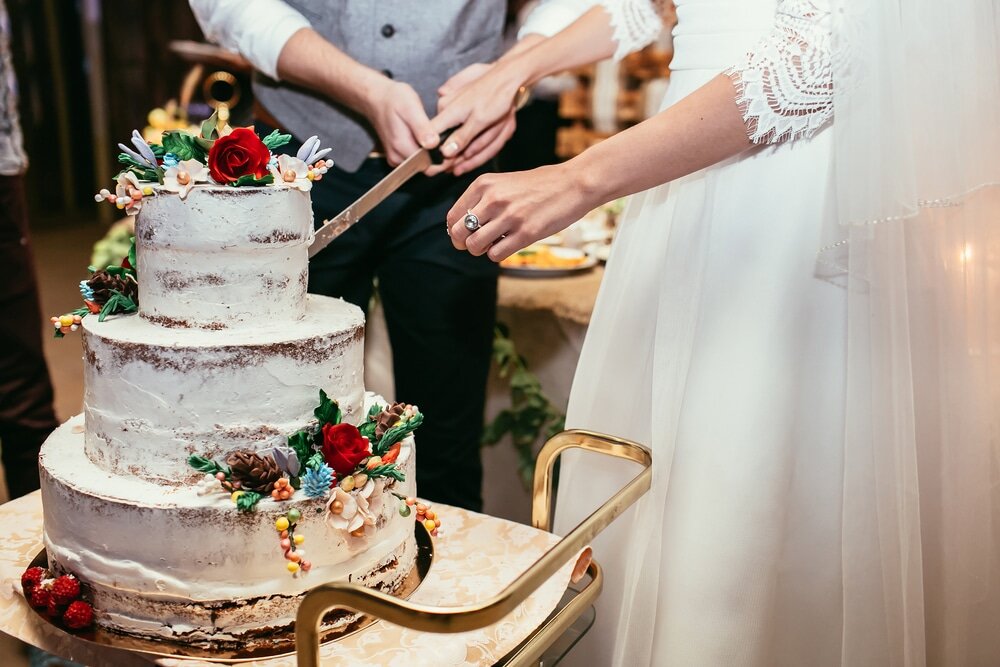 It takes a lot of effort to choose all the right things for your wedding, from the decorations to the cake and everything in between. It’s important to think about who is going to set these things up for the wedding. How soon can you get access to the venue? Will the venue provide any set up of tables, sound equipment etc? What on the day set up needs to be done and who will be responsible? Think about things like putting out the cake and making sure there’s a knife for it to be cut with, sticking a sign out the front with directions for people as they get out of the car, or other details that need to be done on the day.
It takes a lot of effort to choose all the right things for your wedding, from the decorations to the cake and everything in between. It’s important to think about who is going to set these things up for the wedding. How soon can you get access to the venue? Will the venue provide any set up of tables, sound equipment etc? What on the day set up needs to be done and who will be responsible? Think about things like putting out the cake and making sure there’s a knife for it to be cut with, sticking a sign out the front with directions for people as they get out of the car, or other details that need to be done on the day.
4. Wedding entertainment
 Wedding entertainment is one of those things that people tend to overlook. Most commonly, people consider the need for a wedding DJ so their guests can hit the dance floor at the reception, but they forget to think about the ambiance of the ceremony. Who is playing music when you walk down the aisle? Do they know what they’re doing? Do they have the sound equipment to do this? What is going to keep your guests occupied while you are signing the register? Think about every part of the wedding where music or other entertainment might be needed, and make sure you’ve got it covered.
Wedding entertainment is one of those things that people tend to overlook. Most commonly, people consider the need for a wedding DJ so their guests can hit the dance floor at the reception, but they forget to think about the ambiance of the ceremony. Who is playing music when you walk down the aisle? Do they know what they’re doing? Do they have the sound equipment to do this? What is going to keep your guests occupied while you are signing the register? Think about every part of the wedding where music or other entertainment might be needed, and make sure you’ve got it covered.
5. Speeches
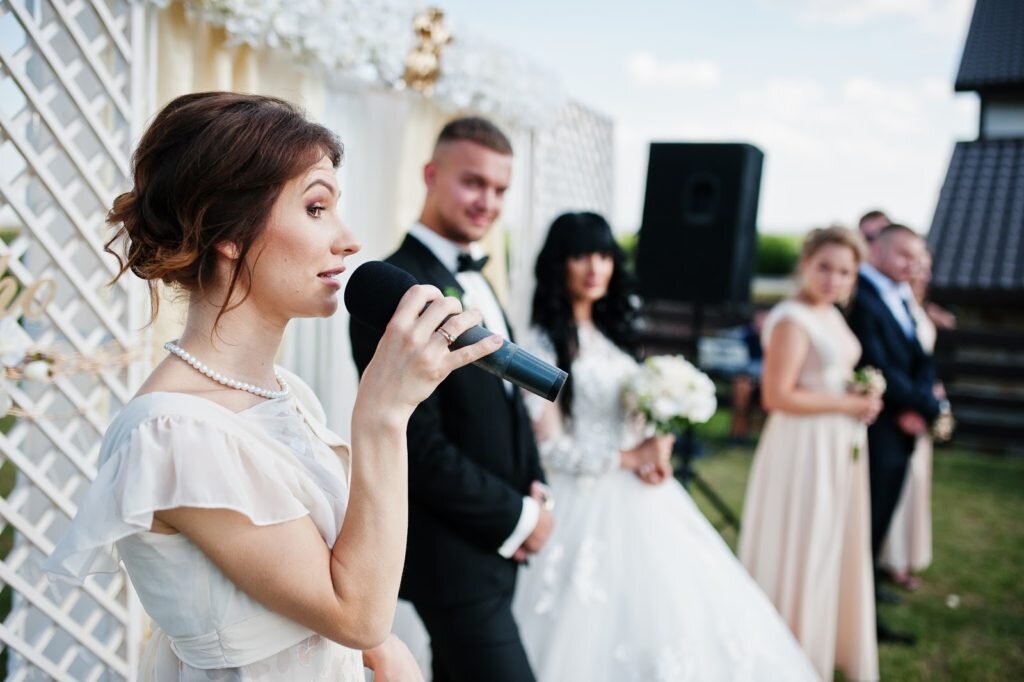 It might seem obvious to you that the Best Man, Maid of Honour or parents of the bride will give a speech at the wedding reception, but different people observe different traditions, and some people have never been to a wedding. Make sure you decide who you want speeches from early in the planning process and speak to each of them about it as soon as you can, giving them plenty of time to prepare. Another note on speeches: think about how you will ensure your speech notes are there on the wedding day. You probably won’t be able to hide them in your wedding dress, and your groom might prefer to keep his pockets free so the suit doesn’t look funny. Consider giving them to your wedding planner or ask your photographer nicely (those camera bags come in handy), a bridesmaid who is carrying a clutch, or a trusted family member with pockets or a bag could also be an option.
It might seem obvious to you that the Best Man, Maid of Honour or parents of the bride will give a speech at the wedding reception, but different people observe different traditions, and some people have never been to a wedding. Make sure you decide who you want speeches from early in the planning process and speak to each of them about it as soon as you can, giving them plenty of time to prepare. Another note on speeches: think about how you will ensure your speech notes are there on the wedding day. You probably won’t be able to hide them in your wedding dress, and your groom might prefer to keep his pockets free so the suit doesn’t look funny. Consider giving them to your wedding planner or ask your photographer nicely (those camera bags come in handy), a bridesmaid who is carrying a clutch, or a trusted family member with pockets or a bag could also be an option.
6. Food for the bridal party
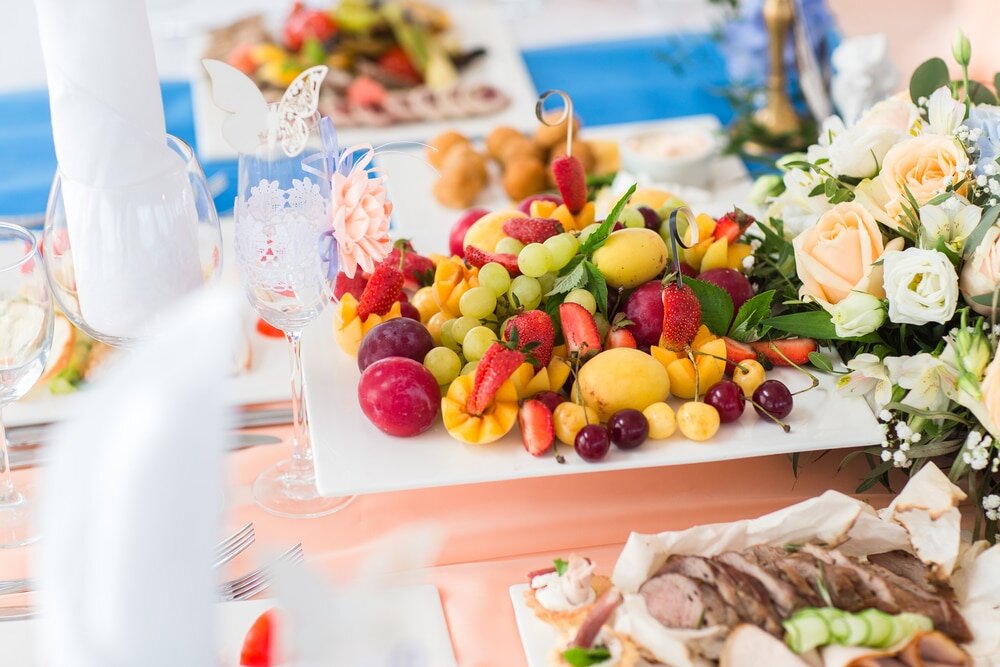 Make sure you’ve thought about providing food for the bridal party throughout the wedding day, starting with a good breakfast. Even if you think you’re going to be too nervous to eat, you don’t want a bridesmaid fainting as she walks down the aisle because she didn’t want to ruin your day by asking for food. Prepare food a couple of days before and have it on hand, have something delivered, or ask a friend to be in charge of bringing around food. Breakfast isn’t the only meal of the day! It’s a good idea to make sure your bridal party has refreshments while you’re getting your photos taken, between the ceremony and the reception. Most important of all, make sure everyone has plenty of fresh water to drink, especially if it’s hot.
Make sure you’ve thought about providing food for the bridal party throughout the wedding day, starting with a good breakfast. Even if you think you’re going to be too nervous to eat, you don’t want a bridesmaid fainting as she walks down the aisle because she didn’t want to ruin your day by asking for food. Prepare food a couple of days before and have it on hand, have something delivered, or ask a friend to be in charge of bringing around food. Breakfast isn’t the only meal of the day! It’s a good idea to make sure your bridal party has refreshments while you’re getting your photos taken, between the ceremony and the reception. Most important of all, make sure everyone has plenty of fresh water to drink, especially if it’s hot.
7. Photographer’s assistant
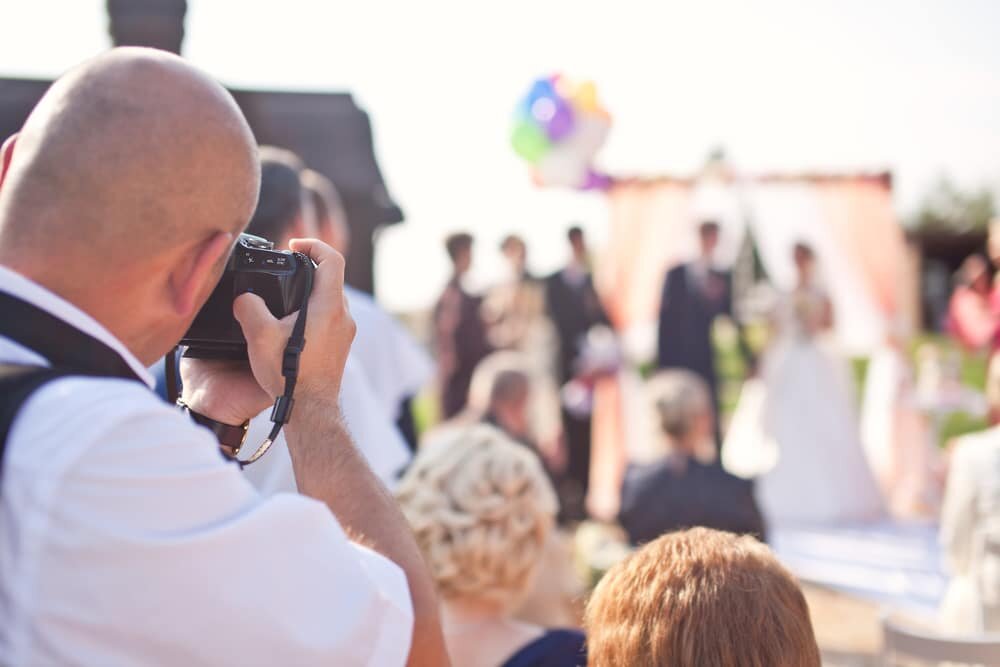 You’ve hired a photographer, and they may even bring along an assistant of their own, so you’re covered right? Well, almost. It’s a good idea to designate an informal ‘assistant’ for your photographer, specifically for when family photos are being taken. Ideally, this person should be familiar with both the bride and groom’s extended families (consider having one person from each side of the family if that’s easier). Their job is essentially to function as a people-wrangler, to make sure everyone is there when the photographer is ready to take group shots. Without someone performing this role, you’ll be shouting across crowds at the wedding, and you might even end up with people missing from important photos.
You’ve hired a photographer, and they may even bring along an assistant of their own, so you’re covered right? Well, almost. It’s a good idea to designate an informal ‘assistant’ for your photographer, specifically for when family photos are being taken. Ideally, this person should be familiar with both the bride and groom’s extended families (consider having one person from each side of the family if that’s easier). Their job is essentially to function as a people-wrangler, to make sure everyone is there when the photographer is ready to take group shots. Without someone performing this role, you’ll be shouting across crowds at the wedding, and you might even end up with people missing from important photos.
8. Paying vendors
 Make sure you know how all your vendors expect to be paid, and when. If you can pay before the wedding, do it! It’s definitely best to get it taken care of and out of the way. Some vendors, however, will expect to be paid in cash on the day of the wedding. Choose someone you trust to be responsible for making sure the money changes hands. This might be your wedding planner, a member of the bridal party, or a close family friend. Make sure they have enough money to cover overtime if it’s needed and a tip, if that’s the norm where you live. If vendors expect to be paid shortly after the wedding (within a week, a fortnight, or a month is common), it may still be best to assign this job to someone else. The last thing you want, as you’re winding down from the festivities, is to be worrying about money and deadlines.
Make sure you know how all your vendors expect to be paid, and when. If you can pay before the wedding, do it! It’s definitely best to get it taken care of and out of the way. Some vendors, however, will expect to be paid in cash on the day of the wedding. Choose someone you trust to be responsible for making sure the money changes hands. This might be your wedding planner, a member of the bridal party, or a close family friend. Make sure they have enough money to cover overtime if it’s needed and a tip, if that’s the norm where you live. If vendors expect to be paid shortly after the wedding (within a week, a fortnight, or a month is common), it may still be best to assign this job to someone else. The last thing you want, as you’re winding down from the festivities, is to be worrying about money and deadlines.
9. The pack up
 Once the bride and groom have said their goodbyes and been whisked away in the limo, what happens? There’s packing up and cleaning to be done. Rented chairs and other equipment needs to be returned, gifts need to be collected and brought to your house, and someone has to sort out which aunty you borrowed each of those 20 vases from. It’s a huge job, and it’s easy to forget about it if you’re not going to have to be there. You really need to plan this in advance, though. Talk to family and friends and see who can help out. Others might end up jumping in to make it faster, but it’s good to leave someone in charge with specific instructions. Give them full details on what needs to go where and how things need to be left, especially if the venue doesn’t come with staff who can help direct the efforts.
Once the bride and groom have said their goodbyes and been whisked away in the limo, what happens? There’s packing up and cleaning to be done. Rented chairs and other equipment needs to be returned, gifts need to be collected and brought to your house, and someone has to sort out which aunty you borrowed each of those 20 vases from. It’s a huge job, and it’s easy to forget about it if you’re not going to have to be there. You really need to plan this in advance, though. Talk to family and friends and see who can help out. Others might end up jumping in to make it faster, but it’s good to leave someone in charge with specific instructions. Give them full details on what needs to go where and how things need to be left, especially if the venue doesn’t come with staff who can help direct the efforts.
10. Thank you cards
 I know, I know...you wouldn’t forget your thank you cards! Unfortunately, this is one of those things that is often overlooked for too long after the wedding. Ideally, they should all be sent out within two months after the big day: the sooner the better. That time slips away so fast, especially if you have a lot of cards to write, so start early. How early? Before the wedding!Order your thank you cards when you order your wedding invitations, and then begin writing your thank you notes for gifts that arrive before the wedding and for your vendors (to include with their payment on the day). Then do some every day after the wedding until they’re done. Otherwise, it’s all too easy to wake up in a honeymoon haze two months after the wedding and think ‘oh right, the thank you cards’. This is rude, and stressful! Avoid it at all costs.
I know, I know...you wouldn’t forget your thank you cards! Unfortunately, this is one of those things that is often overlooked for too long after the wedding. Ideally, they should all be sent out within two months after the big day: the sooner the better. That time slips away so fast, especially if you have a lot of cards to write, so start early. How early? Before the wedding!Order your thank you cards when you order your wedding invitations, and then begin writing your thank you notes for gifts that arrive before the wedding and for your vendors (to include with their payment on the day). Then do some every day after the wedding until they’re done. Otherwise, it’s all too easy to wake up in a honeymoon haze two months after the wedding and think ‘oh right, the thank you cards’. This is rude, and stressful! Avoid it at all costs.

